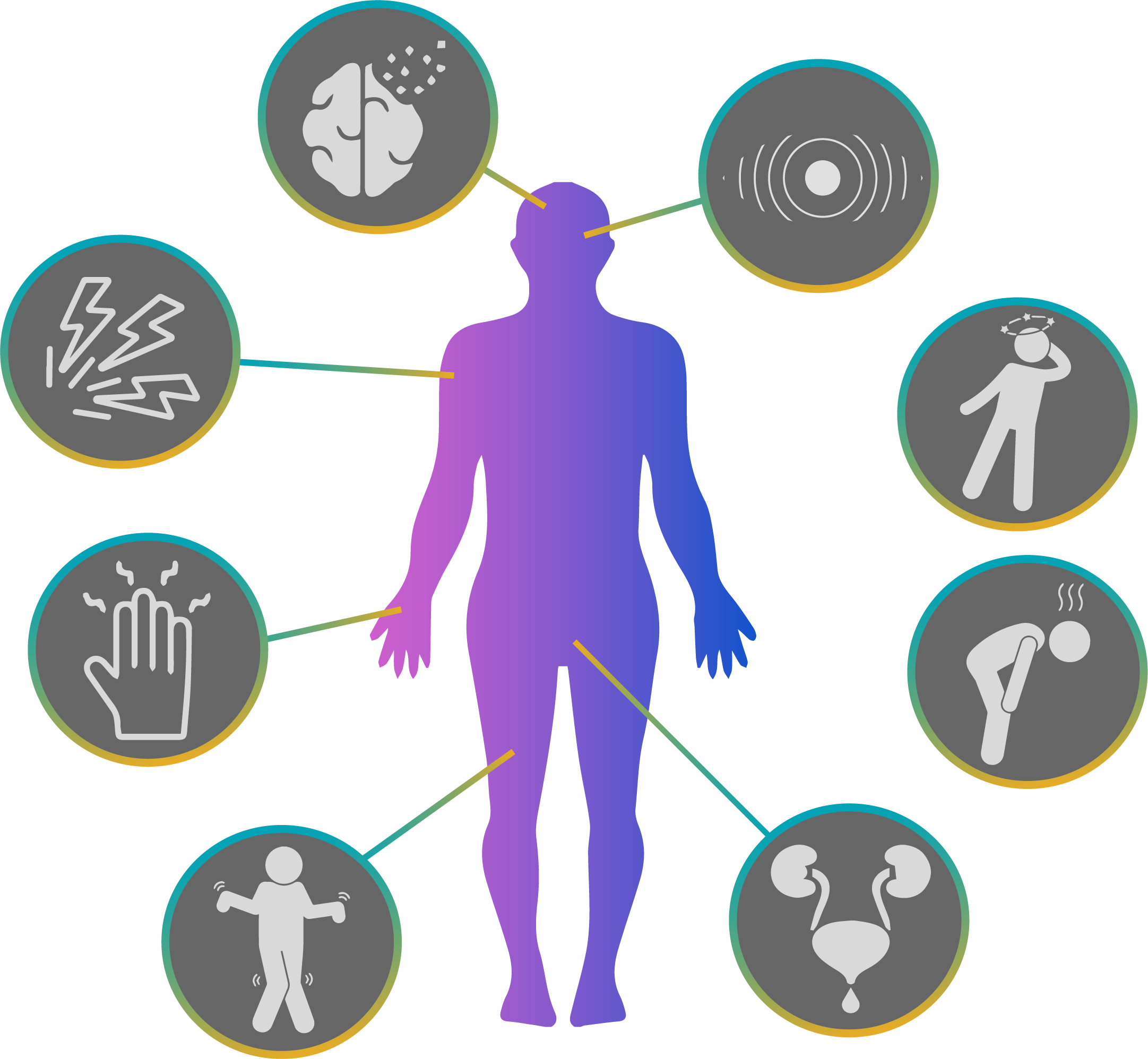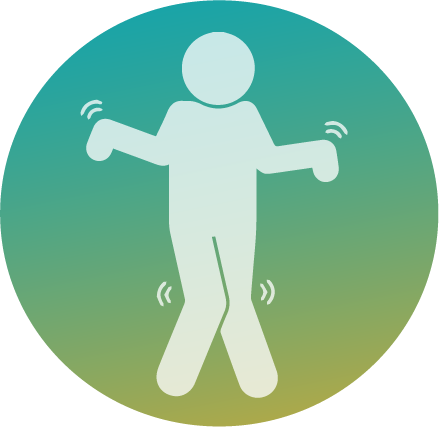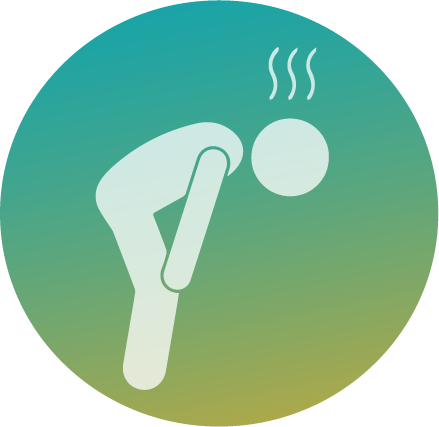Symptoms of MS
Multiple Sclerosis can affect the brain, spine and eyes. Its symptoms are therefore highly varied and depend on the location of demyelinating attack. Some of them may be very similar to the symptoms of other neurological conditions such as stroke, nerve inflammation diseases or even local eye problems.
A study conducted by the Multiple Sclerosis International Federation in 2013 showed that MS patients most commonly experience numbness (40%), followed by poor mobility (39%) and visual disturbances (30%). However, there are also some less recognized symptoms such as pain, memory decline, and continence issues. In addition, MS symptoms do not always imply a new attack, and could be the residual from previous disease activity.


Numbness
Numbness is one of commonest symptoms in MS. It can be due to an attack in the brain or spine. Patients may develop a tingling sensation over the face, trunk or limbs that progresses over a few days and resolves in about a week’s time. The numbness may be mild, similar to the sensation one gets after sleeping on an arm, and thus more than often gets ignored.

Weakness
Similar to numbness, weakness may result from an attack in the brain or spine, and the limb affected depends on the location of the attack. A spinal cord lesion more commonly causes weakness, and in severe cases, patients may become unable to walk due to the involvement of both legs.

Unsteadiness
Unsteadiness in MS can be due to many different reasons. It could be a result of limb weakness; an impairment of the sensory nerves that control body balance; or an attack that occurs in the brainstem which governs coordination. Patients may easily trip over objects or experience ‘scissoring’ of their legs while walking. If the unsteadiness is due to a brainstem attack, it can be associated with vertigo, nausea and vomiting, and rarely, hiccups.

Visual Blurring
Visual blurring in MS usually signifies an episode of optic neuritis, which is an inflammation of the eye nerves. It usually affects one eye at any one time, although it can sometimes affect both eyes simultaneously. The blurring is often associated with pain due to the inflammation, and occasionally, instead of blurring, patient may experience a disturbance in colour vision, seeing faded or altered colours. As with other MS symptoms, the blurring may resolve on its own even without treatment.

Incontinence
Urinary and faecal incontinence are usually due to a spinal cord attack, and often accompany weakness of the lower limbs. In an acute attack, patients often fail to void or pass stool, and experience urge sensations or even abdominal pain. Incontinence may also manifest as a residual symptom, as a prior attack may affect patients’ ability to sense their bladder or bowel, leading to overflow incontinence occasionally.

Memory Decline and Emotional Disturbances
Memory and emotional problems are not uncommon but frequently overlooked symptoms in MS. Due to attacks in the brain, especially in areas that are responsible for memory, MS patients may experience poor memory, poor concentration, or even mood problems that are not purely psychological in origin. Depression is the commonest neuropsychiatric symptom, and while adjustment is sometimes a contributing factor, it could also be related to a lesion in the brain. Other reported symptoms include anxiety, agitation and irritability.

Pain and Spasm
Pain and spasm usually manifest as residual symptoms from previous MS attacks. Patients will experience painful muscle spasms in the limbs that were previously affected in an attack, which usually comes and goes. This may affect walking if the painful spasms occur in the legs.

Fatigue
Fatigue is usually an on-going symptom in MS rather than a sign of relapse. One theory is that due to the demyelinated plaques on the damaged nerves, the body needs to work ‘harder’ to compensate for the slowed nerve conductions to maintain normal body functions. As a result, MS patients get tired more easily. This is especially apparent during extreme weathers which also affect nerve conduction.

Others
Other less commonly reported symptoms in MS include sexual dysfunction, sleep disorders, tremors, seizures, just to name a few. When you are in doubt, consult your physician to determine the nature of your symptom and do not be afraid to seek help!
